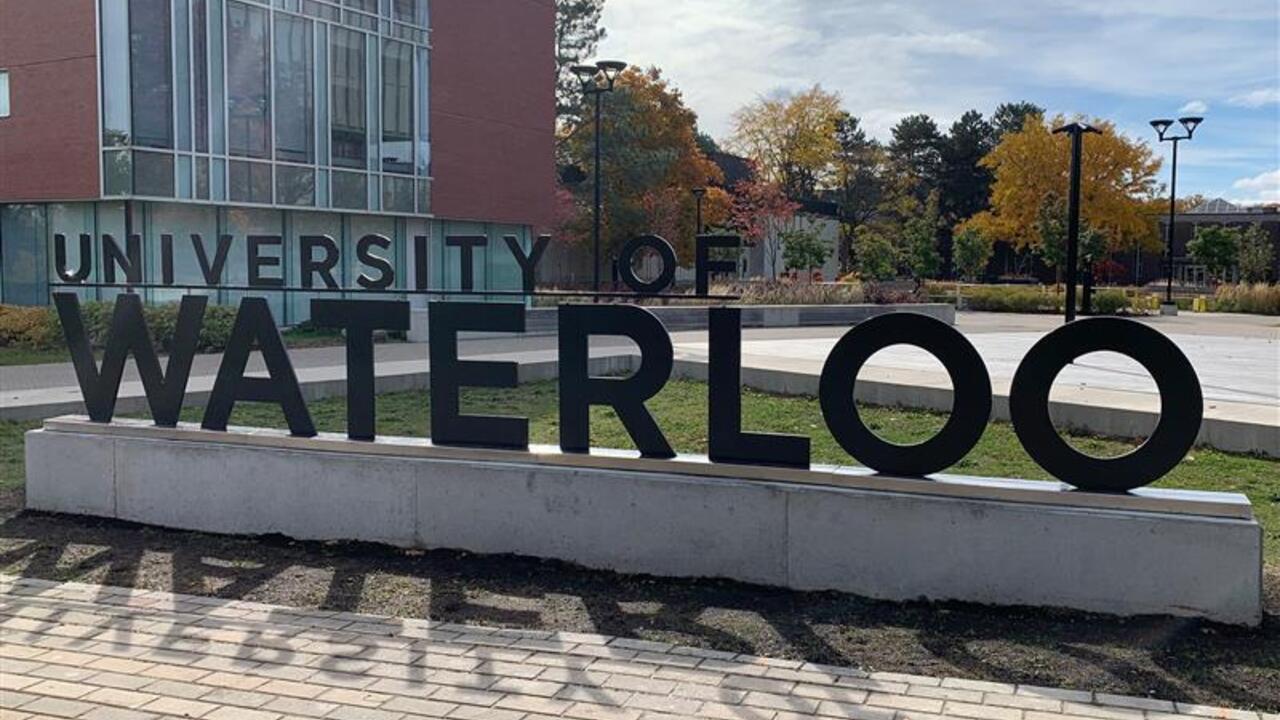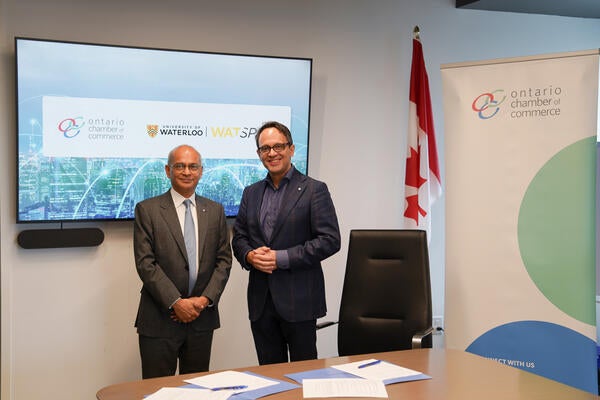
Former science advisor to Britain gives Carty Lecture at Waterloo
The former chief scientific advisor to the British government will give the annual Arthur J. Carty lecture.

The former chief scientific advisor to the British government will give the annual Arthur J. Carty lecture.
By Media RelationsWATERLOO, Ont. (Tuesday, Oct. 18, 2011) - The former chief scientific advisor to the British government will give the annual Arthur J. Carty lecture at the University of Waterloo this week.
Sir David King, currently the director of the Smith School of Enterprise and Environment at Oxford University, was the British government's chief scientific advisor under prime ministers Tony Blair and Gordon Brown and head of the government office for science from 2000 until 2007.
King's lecture, to be held Friday, is entitled Do Governments Need Science Advisors?. The talk will draw on a wide range of issues King faced in government, such as the world’s largest foot-and-mouth disease outbreak, advising security services after the Sept. 11, 2001 terrorist attacks and establishing the world's first adaptation strategy against climate impacts for the British Isles.
The talk, hosted by the faculty of science, will be held at 3:30 p.m. in the J. G. Hagey Hall of the Humanities, room 1101.
The Arthur J. Carty Lectureship was established by distinguished professor emeritus Francis W. Karasek to honour Arthur J. Carty, former chair of the Waterloo chemistry department and the current executive director of the Waterloo Institute for Nanotechnology.
"We are delighted to welcome Sir David King to the University of Waterloo and look forward to hearing his insights on the potential of the science advisory system in governance," said Arthur Carty. "Now in its fifth year, the Arthur J. Carty Lectureship continues to attract high profile individuals with expertise in a variety of scientific topics."
The talk will be followed by a reception. Please RSVP to carty.eventbrite.com or call 519-888-4567 ext. 38804.
Image: Sir David King, director, Smith School of Enterprise and Environment, Oxford University.
About Waterloo Science
Since its founding in 1959, Waterloo's faculty of science has been instrumental in placing the university at the forefront of innovation, discovery and learning. The faculty offers more than 50 core science specializations and options in the departments of biology, physics and astronomy, chemistry, and earth and environmental sciences. It is also home to two world-class professional schools - Canada's only English-speaking optometry school and one of only two pharmacy co-op programs in North America. For more information, go to www.science.uwaterloo.ca.
About the University of Waterloo
In just half a century, the University of Waterloo, located at the heart of Canada's Technology Triangle, has become one of Canada's leading comprehensive universities with 30,000 full- and part-time students in undergraduate and graduate programs. Waterloo, as home to the world's largest post-secondary co-operative education program, embraces its connections to the world and encourages enterprising partnerships in learning, research and discovery. In the next decade, the university is committed to building a better future for Canada and the world by championing innovation and collaboration to create solutions relevant to the needs of today and tomorrow. For more information about Waterloo, visit www.uwaterloo.ca.
Contacts:
Joanna Magee, communications officer, faculty of science, 519-888-4567 ext. 38983 or jmagee@uwaterloo.ca
John Morris, Waterloo media relations, 519-888-4435 or john.morris@uwaterloo.ca
Waterloo news release no. 56

Read more
President of Waterloo EDC says the University of Waterloo plays a pivotal role in region’s economic development on the global stage

Read more
The faculties of Science and Arts introduce a new theatre and performance course tailored to Science students

Read more
Waterloo’s WatSPEED to provide businesses with access to AI upskilling programs in new province-wide initiative
The University of Waterloo acknowledges that much of our work takes place on the traditional territory of the Neutral, Anishinaabeg and Haudenosaunee peoples. Our main campus is situated on the Haldimand Tract, the land granted to the Six Nations that includes six miles on each side of the Grand River. Our active work toward reconciliation takes place across our campuses through research, learning, teaching, and community building, and is co-ordinated within the Office of Indigenous Relations.